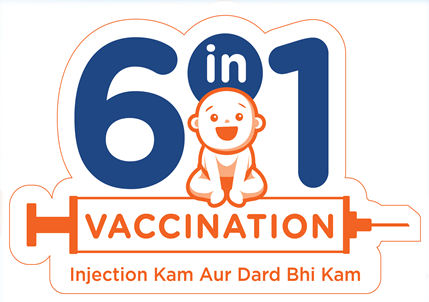

You are now leaving GSK’s website and are going to a website that is not operated/controlled by GSK. Though we feel it could be useful to you,we are not responsible for the content/service or availability of linked sites. You are therefore mindful of these risks and have decided to go ahead.
Agree Agree Agree Stay
In infancy and as they grow, children are exposed to countless germs every day, but their developing immune systems may not be able to fight off all serious infections.1 Vaccination is like a helmet—you never know when you may have an accident, so you need to wear the helmet whenever you are riding a bike. Similarly, you cannot predict what disease-causing bacteria or viruses your child may be exposed to, which is why you need to protect your child with the recommended vaccinations.
According to the World Health Organization, vaccination prevents 2 to 3 million deaths per year from diseases such as diphtheria, tetanus, pertussis, influenza, and measles.2 Experts recommend vaccination for several life-threatening infections.3 Some of them are to be taken via an injection in the first few years of life. Parents should follow the immunization schedule shared by their Paediatrician to keep track of the multiple shots and oral doses that need to be taken, and when they need to be taken.
It is only natural that parents do not want their babies and children to experience too much pain, and the thought of multiple injections could be fearful and worrisome. However, the introduction of combination vaccination has put some of these fears to rest. Combination vaccination combines multiple vaccines into a single shot.4
For example, 6 in 1 combination vaccination helps protect children against 6 diseases: polio, hepatitis B, diphtheria, tetanus, whooping cough (pertussis), and Hib (Haemophilus Influenzae type b) disease in a single shot.5 All 6 diseases are serious. Polio can lead to paralysis and disability.6 Hepatitis B is a viral infection that affects the liver and can lead to short-term or long-term complications.7 Diphtheria is a serious throat infection.8 Tetanus can lead to muscle spasms and difficulty breathing.9 Pertussis is a respiratory disease that can be serious in young infants,10 and Hib disease also includes serious illnesses such as pneumonia or brain fever.11 The use of a 6 in 1 vaccination could result in fewer injection pricks meaning less pain along with timely protection for the child, and less discomfort for the parents too. It could also mean fewer visits to the doctor and less time off from work or family activity.12
Speaking about the benefits of combination vaccination, Dr. Sanjeev Ahuja, Consultant Paediatrician, Hiranandani Mumbai, said, “Ever since their introduction, combination vaccination has truly revolutionized the field. According to the vaccination schedule, multiple diseases need to be tackled in the first few months of life, particularly at the 6th, 10th, and 14th week after birth. With a combination vaccination, you can replace multiple injections with a single shot that offers protection against multiple diseases. This reduces the number of pricks, which is of great importance for the family to reduce the pain that the child experiences. It is practical, easy to implement, and reduces the number of visits to the doctor. We need more and more combination vaccinations.”
Recently, Mahendra Singh Dhoni, Former World Cup Captain, former Chennai Super Kings skipper, and most importantly, real-life father, has been part of an awareness campaign that talks about the prevention of 6 diseases by vaccination. As a father, he is well aware of how parents feel when they watch their child receiving multiple injections and the benefits that a combination vaccination offers.
For parents worried about side effects from the 6 in 1 vaccination, these are similar to those of individual vaccination. The swelling or pain at the injection site may be slightly more with the combination vaccination, though it would still be less than the pain of administering multiple injections. Other side effects such as fever, irritability, and loss of appetite are common to most vaccinations.5
If your child is aged 0-2 months old, consult with your Paediatrician for any medical advice and to know more about the prevention of disease by way of vaccination.
References:
